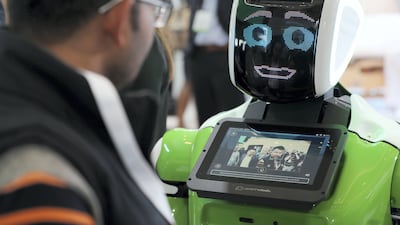I recently attended a meeting where an acquaintance was working on ways to enhance his product.
“Let’s ask ChatGPT,” he suggested and started typing on his laptop.
Scenes like this are becoming the new normal in corporate life. People are increasingly relying on artificial intelligence models such as ChatGPT and Google’s Bard to help them write emails and create marketing strategies.
AI tools deliver streamlined workflows and help save hours spent on research and data generation.
But, on the other hand, there is the fear that AI may make jobs obsolete one day.
However, I believe these automation tools are not necessarily working against us. They are reliable personal assistants that free our teams from mundane tasks to focus on creative thinking.
But in the pursuit of streamlined workflows and saving time, we risk jeopardising the essence of our brand – the human connection – the bonds and trust we build through a handshake, a warm smile and common interests.
We are witnessing a tug-of-war between efficiency and human connection.
I recently worked with the founder of a brand who had handwritten a dinner invitation to influencers on special recycled paper and followed it up with a personal call to formally invite them.
In an age in which invitations are shared through WhatsApp messages and emails, the invitees said the owner’s personal and authentic touch motivated them to not only attend the dinner but also trust the brand.
So, how do you utilise the efficiency and free time that AI blesses us with?
How do you benefit from all the great things that AI offers, while safeguarding an authentic human connection?
Make AI your best friend. Invest in equipping your team with the right tools and know-how to navigate the world of AI and leverage it for work.
Train them in data analysis so they know how to use it to craft a brand story and better solutions.
Work on enhancing their emotional intelligence skills so that they can better connect with an audience.
It is also essential to ensure that team members are trained to become storytellers; something that AI can never replace.
Teams need to know how to use AI-produced data to create strategies that will help organisations thrive and connect with their clients and stakeholders better.
Secondly, save human connection for crucial touchpoints.
Similar to the brand founder I worked with, encourage your team to personalise emails, craft handwritten notes and, where possible, make phone calls and organise in-person meetings.
We are bombarded by mass emails and scheduled social media campaigns. The human connection could turn clients into loyal brand ambassadors.
Lastly, be refreshingly authentic. Our social media timelines are filled with filtered content and scripted dialogues.
writer and communications adviser
Brands need to be real in a way that their audience can connect with them.
Genuine, relatable content builds engagement, and transparency and authenticity build trust.
Organisations and leaders should embrace the benefits that AI brings to the table, but never forget that authentic human connection builds brands and helps to sustain them in the long run.
In the age of automation and digital advancement, the human touch is the most valuable asset that organisations possess.
Manar Al Hinai is an award-winning Emirati writer and communications adviser based in Abu Dhabi.

